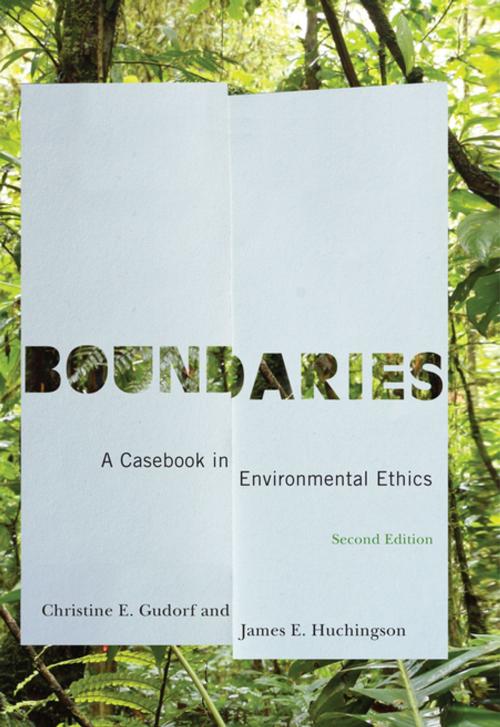Boundaries
A Casebook in Environmental Ethics, Second Edition
Nonfiction, Social & Cultural Studies, Political Science, Government, Public Policy, Religion & Spirituality, Philosophy, Ethics & Moral Philosophy, Science & Nature, Nature| Author: | Christine E. Gudorf, James E. Huchingson | ISBN: | 9781589016859 |
| Publisher: | Georgetown University Press | Publication: | April 15, 2010 |
| Imprint: | Georgetown University Press | Language: | English |
| Author: | Christine E. Gudorf, James E. Huchingson |
| ISBN: | 9781589016859 |
| Publisher: | Georgetown University Press |
| Publication: | April 15, 2010 |
| Imprint: | Georgetown University Press |
| Language: | English |
In this expanded and revised edition of a fresh and original case-study textbook on environmental ethics, Christine Gudorf and James Huchingson continue to explore the line that separates the current state of the environment from what it should be in the future.
Boundaries begins with a lucid overview of the field, highlighting the key developments and theories in the environmental movement. Specific cases offer a rich and diverse range of situations from around the globe, from saving the forests of Java and the use of pesticides in developing countries to restoring degraded ecosystems in Nebraska. With an emphasis on the concrete circumstances of particular localities, the studies continue to focus on the dilemmas and struggles of individuals and communities who face daunting decisions with serious consequences. This second edition features extensive updates and revisions, along with four new cases: one on water privatization, one on governmental efforts to mitigate global climate change, and two on the obstacles that teachers of environmental ethics encounter in the classroom. Boundaries also includes an appendix for teachers that describes how to use the cases in the classroom.
In this expanded and revised edition of a fresh and original case-study textbook on environmental ethics, Christine Gudorf and James Huchingson continue to explore the line that separates the current state of the environment from what it should be in the future.
Boundaries begins with a lucid overview of the field, highlighting the key developments and theories in the environmental movement. Specific cases offer a rich and diverse range of situations from around the globe, from saving the forests of Java and the use of pesticides in developing countries to restoring degraded ecosystems in Nebraska. With an emphasis on the concrete circumstances of particular localities, the studies continue to focus on the dilemmas and struggles of individuals and communities who face daunting decisions with serious consequences. This second edition features extensive updates and revisions, along with four new cases: one on water privatization, one on governmental efforts to mitigate global climate change, and two on the obstacles that teachers of environmental ethics encounter in the classroom. Boundaries also includes an appendix for teachers that describes how to use the cases in the classroom.















